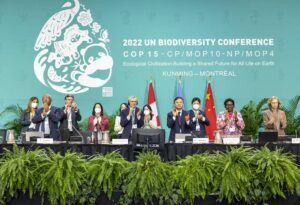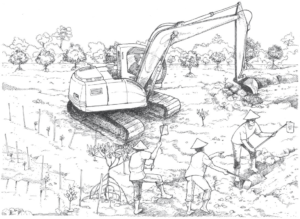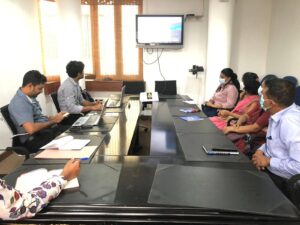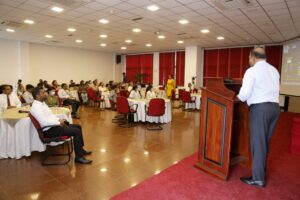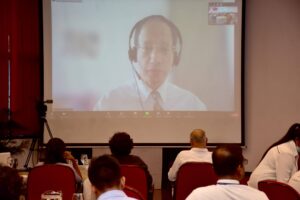In December 2022 the world has a unique chance to renew its relationship with nature by adopting a new and ambitious post-2020 Global Biodiversity Framework (GBF) during the 15th conference of the parties to the Convention on Biological Diversity.
Nature underpins prosperity and well-being through the services provided to society and the economy. People rely on nature for services without which their lives would not be possible, such as clean air and water, fertile soil for food, and pest and disease regulation. The interactions between the different elements of nature provide “services” or contributions to society and the economy worth USD $43 trillion. More than half the world’s GDP depends heavily on the functioning of these natural ecosystems. What does nature-positive mean for business?
These “building blocks” guide businesses to act now to halt and reverse nature loss, and credibly contribute to a nature-positive world, with positive impacts outweighing negative impacts on nature from 2030 onwards.
FOR SUPPORT IN THE APPLICATION OF THESE ”BUILDING BLOCKS” – PLEASE CONTACT US
- Assess and Prioritize
Assess realms of nature (biodiversity, freshwater, land, oceans) potentially relevant to operations and the value chain, and prioritize impacts, dependencies and opportunities for regeneration.
Businesses should consider both the living (i.e., biodiversity) and non-living elements that are potentially relevant within all realms of nature (land, freshwater and oceans). Then prioritize them based on an assessment of the material impacts and dependencies on biodiversity and ecosystem services within their direct operations and value chains, and the related risks and opportunities for business, people and the natural world.
- Commit
Set a baseline and commit to ambitious, time-bound, science-informed goals and targets to both halt and reverse the loss of nature.
Building on existing commitments and actions related to nature, businesses should aim to both:
- Halt – Minimize their contributions to negative outcomes for nature and reduce pressure on nature;
- Reverse – Maximize their contributions to positive outcomes in terms of health, abundance, diversity and resilience of species, populations and ecosystems
- Measure & Value
Use validated, interrelated indicators to measure nature outcomes that inform decision-making.
Businesses typically start by measuring and reporting on their business response or actions and resulting change in applicable pressures on nature: land or sea-use change, direct exploitation, climate change, pollution, and invasive species. Businesses can use a framework of indicators to gain a holistic picture of progress on nature goals and targets in order to inform decision-making within and outside businesses
- Act
Businesses should embed nature considerations and aim for nature-positive outcomes across all their spheres of control and influence, prioritizing where there is greatest impact and leverage
Systematically apply the mitigation hierarchy within and beyond corporate operations to reduce pressures and have positive contributions across your value chain.
Halt: Businesses should give priority to avoiding and reducing pressures on nature across all scales of action, particularly for critical ecosystems
Reverse: Businesses should also put in place complementary actions to protect, restore and regenerate nature, including in their wider spheres of influence, including site-based practices as well as product and business-model design.
- Transform
Collaborate to achieve nature-positive outcomes across all spheres of control and influence, including policy, financing and capacity building.
While the potential negative and positive impacts and opportunities will vary across value chains, net-positive is the aspirational direction for all businesses. To help scale up actions and contribute to true systems transformation, businesses should aim to catalyze lasting change and proactively collaborate with key stakeholders at all system levels
- Disclose & Report
Prepare to disclose material nature-related information
Following in the footsteps of climate, businesses should be aware of the growing momentum for nature-related disclosures to help shift finance away from nature-negative outcomes and toward nature-positive outcomes. Business responses to manage those risks and opportunities, including relevant governance structures, strategies, and targets, that will inform investment decisions in the financial system and real economy Thus, disclosure and reporting support the implementation of the other building blocks.




